General Surgery Turkey
General surgery in Turkey refers to surgical procedures performed by general surgeons who are trained to operate on a wide range of conditions affecting various parts of the body. Turkey is known for its advanced medical infrastructure, experienced surgeons, and competitive pricing, making it a popular destination for medical tourism, including general surgery procedures.

General Surgery in Turkey: A Comprehensive Overview
General surgery in Turkey starts with a detailed consultation and medical evaluation to determine the patient’s specific needs and the most appropriate surgical plan. The range of general surgeries includes procedures such as hernia repair, gallbladder removal, appendectomy, and colorectal surgery. These surgeries are performed using advanced techniques, including minimally invasive laparoscopic methods, in state-of-the-art medical facilities by highly skilled surgeons. Pre-operative tests are conducted to ensure the patient’s overall health and readiness for surgery. Post-operative care includes comprehensive follow-up visits, personalized recovery plans, and ongoing medical support to ensure a successful recovery.
General Surgery Steps
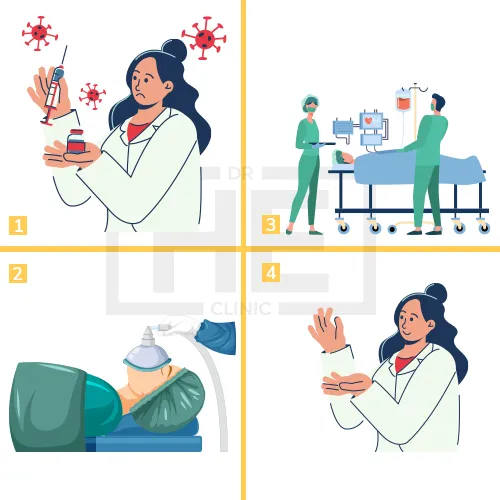
Preoperative Assessment:
- Medical Evaluation: Assessment of the patient’s medical history, physical examination, and any necessary diagnostic tests to evaluate the patient’s suitability for surgery.
- Informed Consent: Discussion of the benefits, risks, and alternatives of the surgery with the patient to obtain informed consent.
Preparation Before Surgery:
- Fasting: Patients are usually required to fast for a certain period before the surgery to reduce the risk of aspiration during anesthesia.
- Preoperative Medications: Administration of medications, if needed, to prepare the body for surgery, such as antibiotics to prevent infection.
Anesthesia:
- Induction: Administration of anesthesia to ensure the patient is asleep and pain-free during the procedure.
- Maintenance: The anesthesiologist monitors and adjusts the anesthesia as needed throughout the surgery.
Surgical Procedure:
- Incision: The surgeon makes an incision to access the area needing surgery.
- Operative Task: The specific surgical task is performed, such as removing an organ, repairing tissue, or implanting devices.
- Hemostasis: Control of bleeding during the procedure.
- Closure: The incision is closed with sutures, staples, or adhesive glue.
Postoperative Care:
- Immediate Post-op: The patient is moved to a recovery area to be closely monitored as the anesthesia wears off.
- Pain Management: Administration of pain medication to manage discomfort.
- Wound Care: Instructions and care for the surgical site to promote healing and prevent infection.
- Recovery and Rehabilitation: Guidance on activity levels, dietary restrictions, and any necessary rehabilitation to return to normal activities.
Follow-up:
- Postoperative Visits: Scheduled visits to the surgeon to monitor the healing process and address any concerns.
- Long-term Care: Depending on the surgery, there may be ongoing care or lifestyle adjustments needed.
Types of General Surgery
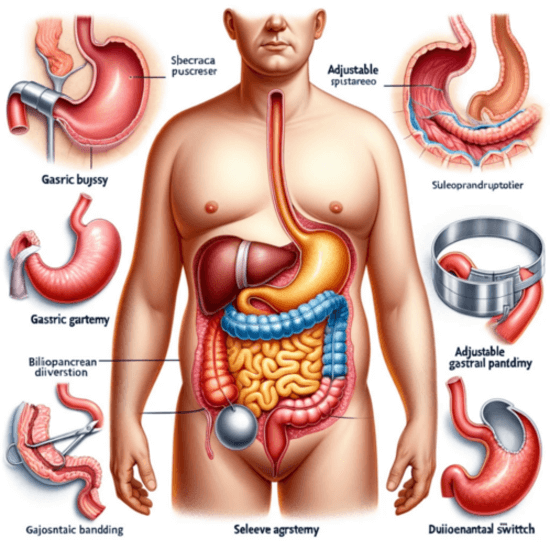
Abdominal Surgery:
- Appendectomy: Removal of the appendix, often due to appendicitis.
- Cholecystectomy: Removal of the gallbladder, typically for gallstones or gallbladder disease.
- Hernia Repair: Repair of hernias, including inguinal, femoral, umbilical, and incisional hernias.
- Gastrectomy: Partial or total removal of the stomach, usually for cancer or severe ulcers.
Colorectal Surgery:
- Colectomy: Removal of all or part of the colon, often for cancer, diverticulitis, or inflammatory bowel disease. Hemorrhoidectomy: Surgical removal of hemorrhoids.
- Rectal Surgery: Procedures targeting diseases of the rectum, anus, and perianal area.
Breast Surgery:
- Mastectomy: Removal of one or both breasts, partially (segmental mastectomy) or completely (total mastectomy), often for breast cancer.
- Lumpectomy: Removal of a lump or abnormality in the breast, preserving as much normal breast as possible.
Endocrine Surgery:
- Thyroidectomy: Removal of all or part of the thyroid gland, often for thyroid cancer, nodules, or hyperthyroidism.
- Parathyroidectomy: Removal of one or more of the parathyroid glands, usually due to hyperparathyroidism.
Adrenalectomy: Removal of one or both adrenal glands, often for tumors.
Skilled Surgeons and Innovative Techniques
Turkey is renowned for its skilled surgeons and innovative techniques in general surgery. The country’s healthcare system boasts state-of-the-art facilities and highly trained professionals who provide world-class surgical care.
Popular General Surgeries in Turkey
Bariatric Surgery: Procedures like gastric sleeve, gastric bypass, and adjustable gastric banding are commonly performed with high success rates.
Oncological Surgery: Turkey’s oncology surgeons are skilled in complex cancer surgeries, including tumor resections and minimally invasive techniques for various cancers.
Orthopedic Surgery: Joint replacements, spinal surgeries, and sports injury treatments are some of the orthopedic procedures offered by expert surgeons in Turkey.
General Surgery Turkey Procedures
| Procedure | Description |
|---|---|
| Inguinal Hernia Surgery | Surgical repair of an inguinal hernia, where part of the intestine protrudes through the abdominal wall. |
| Hiatal Hernia Surgery | Surgical repair of a hiatal hernia, where part of the stomach protrudes into the chest cavity through the diaphragm. |
| Nissen Fundoplication (GERD Surgery) | A procedure to treat gastroesophageal reflux disease (GERD) by wrapping the top of the stomach around the lower esophagus to strengthen the lower esophageal sphincter. |
| Gallbladder Surgery (Cholecystectomy) | Surgical removal of the gallbladder, typically due to gallstones causing pain or complications. |

Need Help? Contact Us!
7/24 Obesity Help Desk
General Surgery
All Inclusive Packages-
Pre-Op Examinations
-
Medication and Diet Plan
-
2-3 Night Accommodation
-
Post-Op Support & Counselling
-
VIP Transportation
General Surgery Turkey Cost 2024
As of 2024, the cost of general surgery in Turkey varies depending on the type of surgery, the hospital, and other factors. Here’s a general idea of the costs:
The average cost of general surgery in Turkey is approximately between $2,000 and $7,000. This range is considerably lower compared to countries like the United States or the United Kingdom.
| Region | Average General Surgery Cost |
 Turkey Turkey | $2,000 – $7,000 or more |
 USA USA | $8,000 – $12,000 or more |
 Canada Canada | $8,000 – $12,000 or more |
 UK UK | £5,000 – £8,000 or more |
 Australia Australia | AUD 8,000 – AUD 15,000 or more |
 Germany Germany | €8,000 – €10,000 or more |
 France France | €7,000 – €10,000 or more |
Why does General Surgery Cost in Turkey Cheap?
- Exchange rate: Favorable exchange rates for foreign currencies relative to the Turkish lira can make procedures even cheaper for international patients.
- Standardized procedures: Many Turkish clinics employ standardized protocols and techniques for common procedures like General Surgery, achieving efficiency and cost savings.
How to Reach Turkey?
By Air: Turkey is well-connected with direct flights from major cities around the world. There are international airports in Istanbul, Ankara, Antalya, and Izmir, among others. You can check for flights from your nearest major airport to one of these Turkish cities.
By Sea: Turkey has several ports that receive passenger ferries from neighboring countries and islands. You can travel to Turkey by ferry from Greece, Russia, Ukraine, and other nearby locations. Major ports include Istanbul, Izmir, and Antalya.
By Train: While not as common as air or sea travel, you can also reach Turkey by train from select European cities. The most common routes are from Sofia, Bulgaria, and Bucharest, Romania, to Istanbul. However, train travel to Turkey may require multiple transfers and take longer compared to air or sea travel.
| Departure City | Arrival City | Duration | Estimated Price |
|---|---|---|---|
| 🛫 London (LHR) | 🛬 Istanbul (IST) | ⏰ 3 hours 50 minutes | 💰 $300 |
| 🛫 Manchester (MAN) | 🛬 Istanbul (IST) | ⏰ 4 hours 35 minutes | 💰 $350 |
| 🛫 Paris (CDG) | 🛬 Istanbul (IST) | ⏰ 3 hours 25 minutes | 💰 $280 |
| 🛫 Frankfurt (FRA) | 🛬 Istanbul (IST) | ⏰ 2 hours 55 minutes | 💰 $320 |
| 🛫 Moscow (VKO) | 🛬 Istanbul (IST) | ⏰ 4 hours 25 minutes | 💰 $400 |
After General Surgery in Turkey
Submit your request for access to before and after photos to see actual patient results from our many cosmetic procedures and treatments at Dr. HE Clinic.
General Surgery Turkey Reviews

Posted on
Truspilot
Posted on
TruspilotIs it Safe To Have A General Surgery in Turkey?
Having general surgery in Turkey can be safe, provided that certain conditions are met. Turkey has a growing reputation in medical tourism, including general surgery, due to its combination of lower costs and high-quality medical care.
While many patients have successful surgery in Turkey with positive outcomes, it’s crucial to do thorough research and make informed decisions.
Frequently Asked Questions About General Surgery
Does Health Insurance Pay for the General Surgery?
Whether health insurance covers general surgery depends on several factors including the specific insurance policy, the type of surgery, the patient’s medical history, and the guidelines set by the insurance provider.
How Long Does General Surgery Take?
Gastric Bypass (Roux-en-Y): This procedure typically takes between 2 to 3 hours. It involves creating a small stomach pouch and rerouting the small intestine to this pouch.
Sleeve Gastrectomy: This surgery usually takes about 1 to 2 hours. It involves removing a portion of the stomach to create a smaller, sleeve-shaped stomach.
Adjustable Gastric Banding: This is often the shortest of the three, taking about 1 hour. The procedure involves placing a band around the upper part of the stomach to create a small stomach pouch.
Is General Surgery Painful?
General surgery, like any major surgical procedure, can be associated with some degree of pain and discomfort, particularly during the initial recovery period. However, the experience of pain can vary greatly from person to person.
Is There a Scar After The General Surgery?
Typically leaves 3-5 small laparoscopic scars (0.5-1.5 cm) on the abdomen, one near the belly button and others around the upper abdomen.
Scars gradually fade to become paler and flatter, potentially blending with surrounding skin in 1-2 years.
QUALITY CERTIFICATES














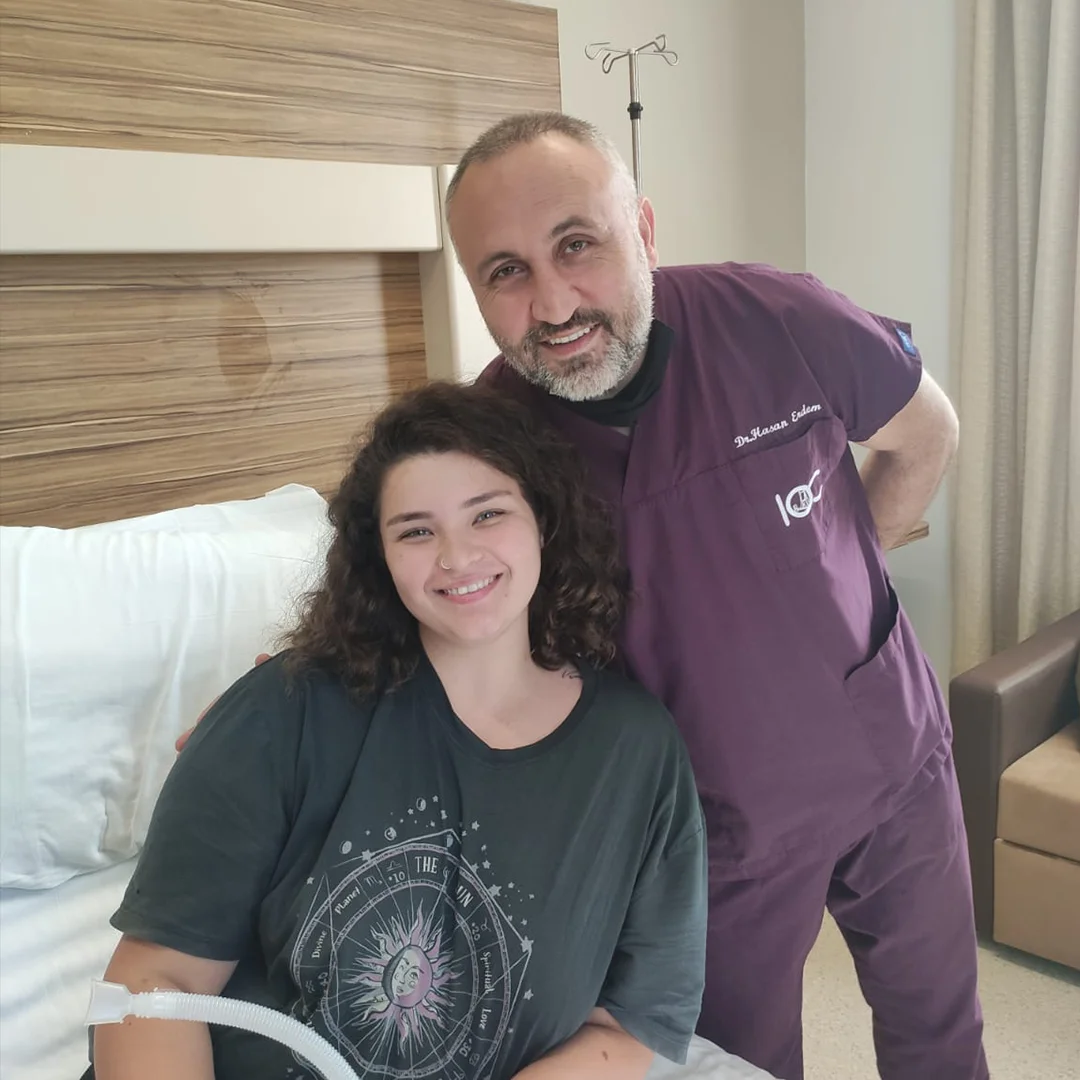
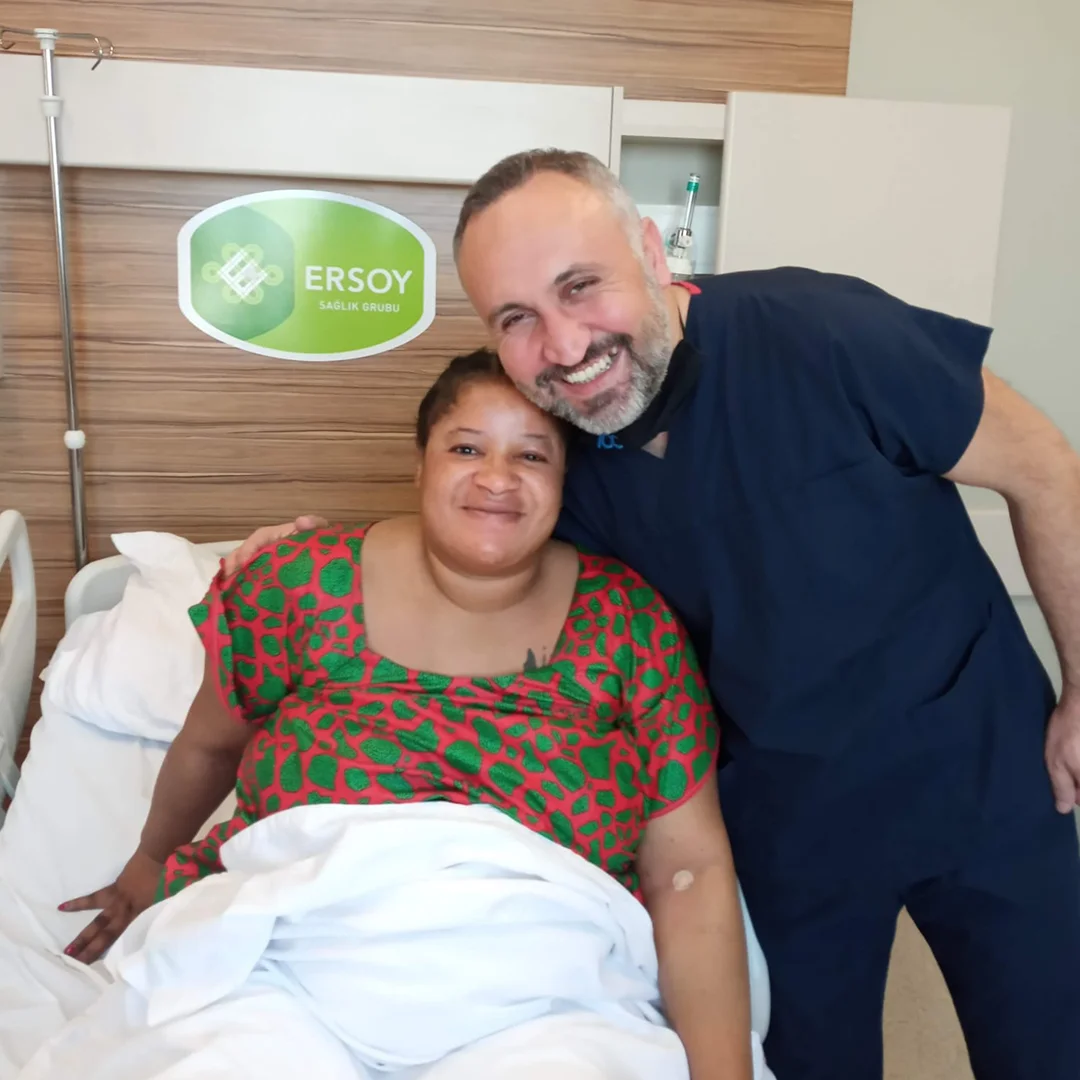

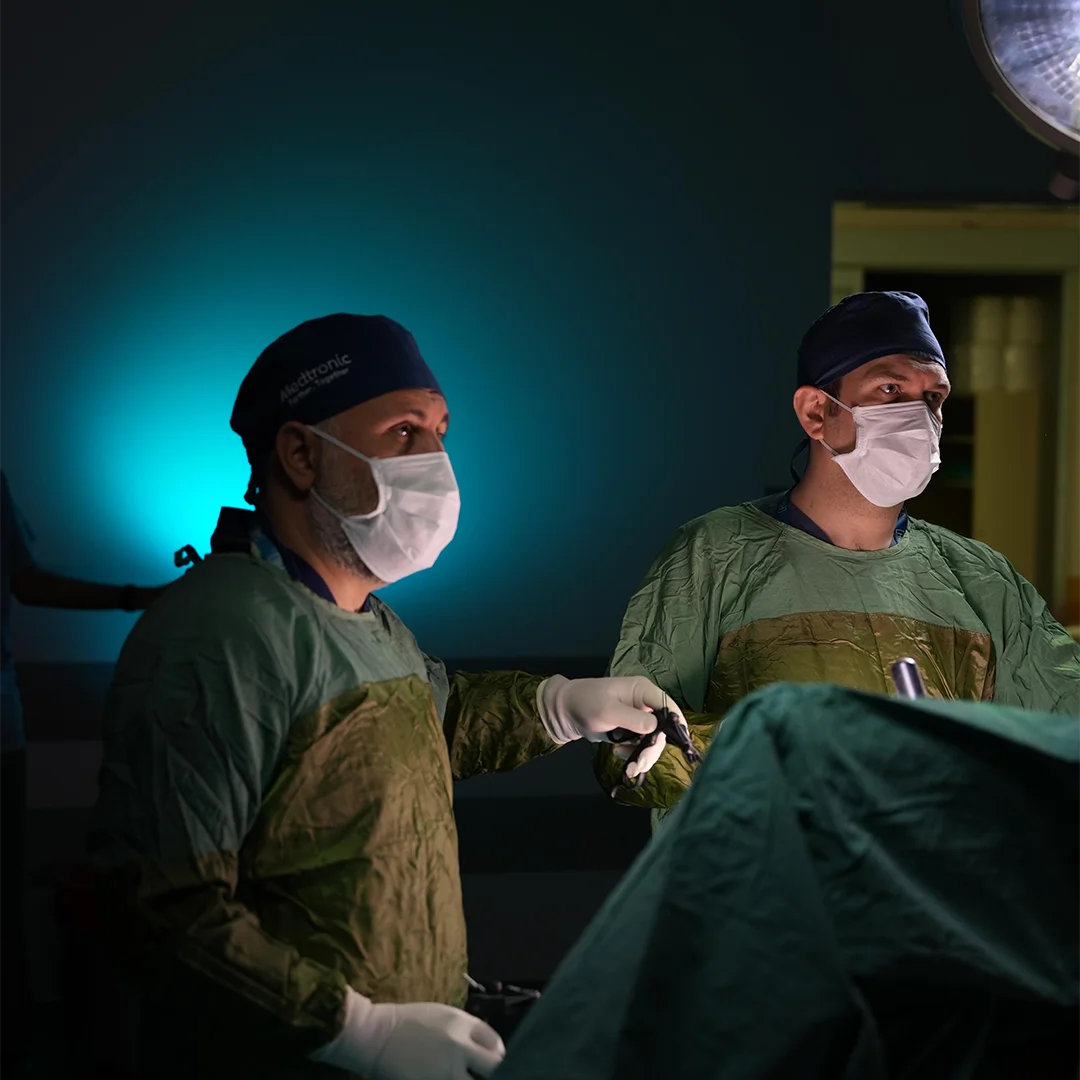



Posted on
Truspilot